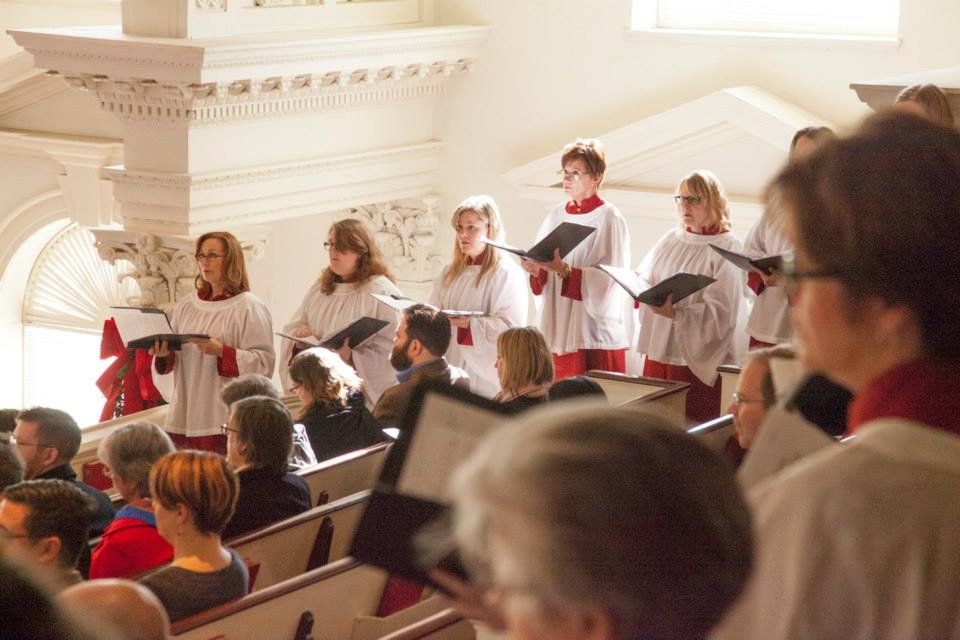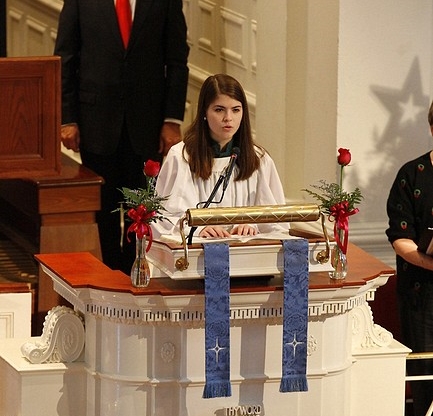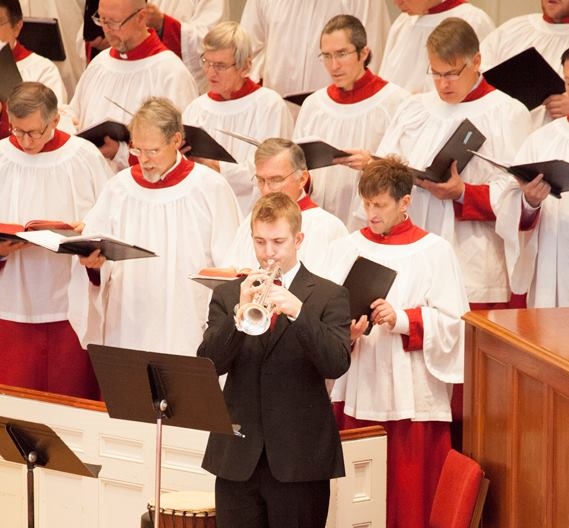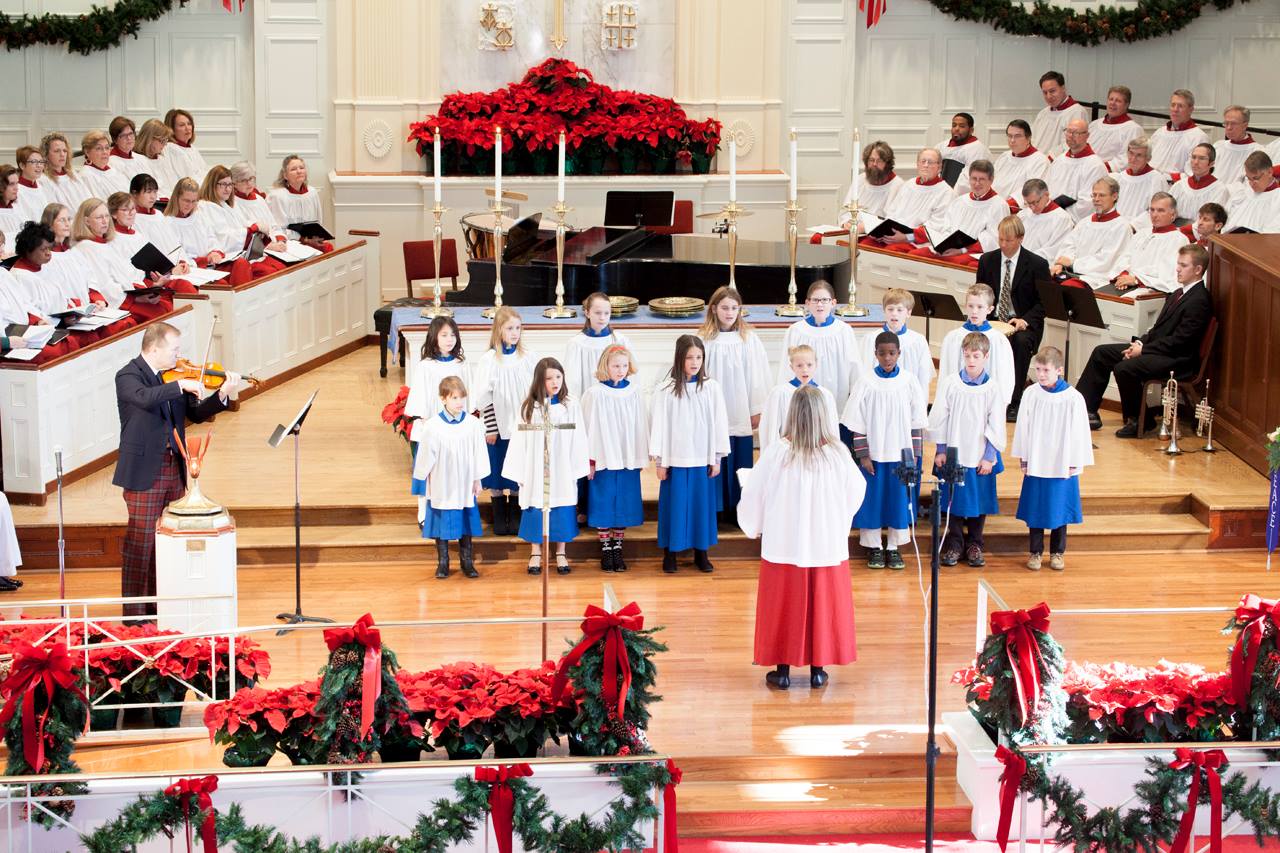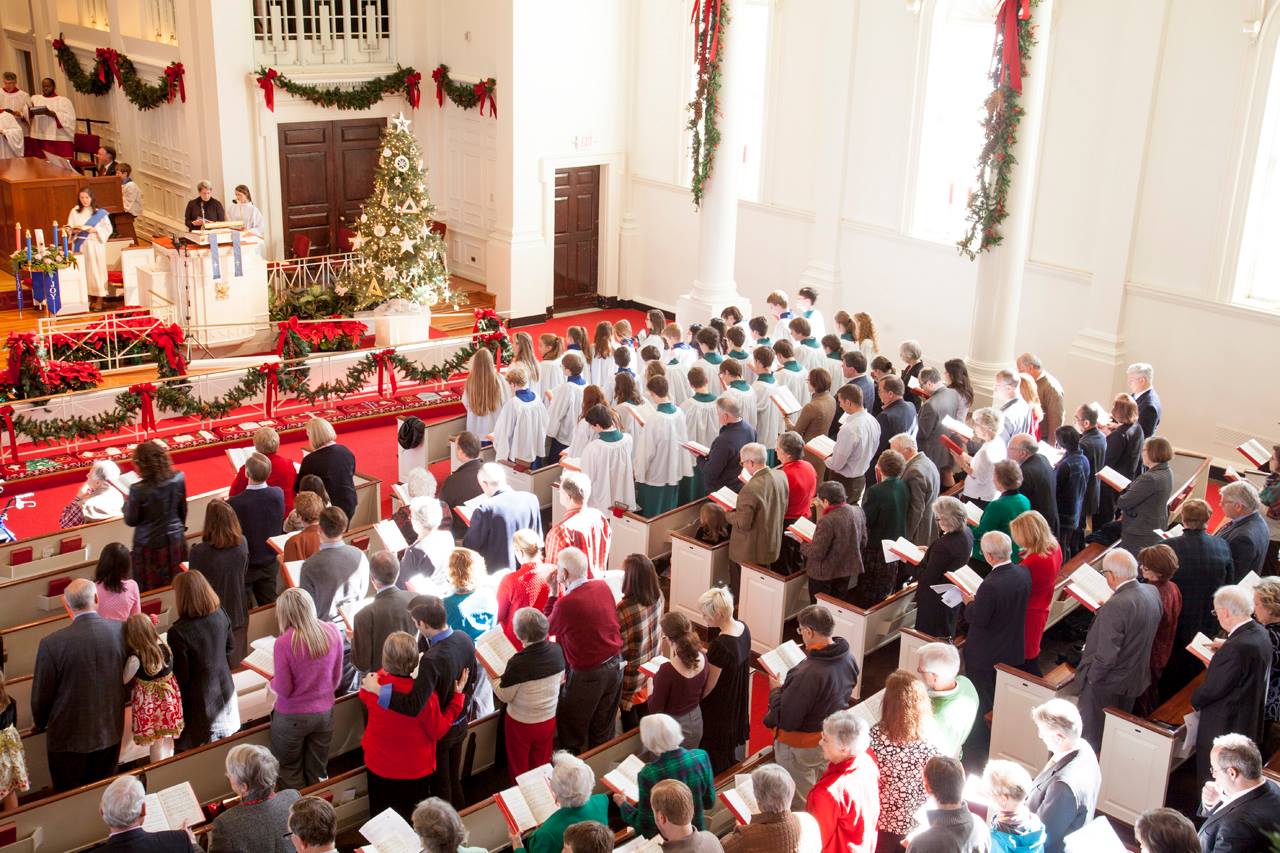This week begins our 5-week blog series on Advent. Guest bloggers from the congregation will write on a few of our upcoming events, reminding us of their significance in our life together and in this season of Advent and Christmas.
Stewart Voegtlin begins the series with a piece on Advent wreath-making. Stewart is a 2015 graduate of Candler with a Masters of Theological Studies (MTS). He currently serves Glenn as a Youth Ministry intern and completed a pastoral care internship through Glenn in the spring of 2015. Stewart is a member of Glenn with his wife, Katrina, and their son, Trey. In his spare time he works towards committing the entirety of the Loeb Classical Library to memory, and vividly imagines catching ancient brown trout from undiscovered streams.
Pastor Culla Manse always struck Middle C before playing the piano. What was perhaps Manse’s way of sounding a preparatory note has come to oddly define the meaning and metaphysics of Advent for me. I have often wondered if this habit meant anything for his congregation. Their reactions were neither arguable nor clear: they were unresponsive, as if he had done nothing but breathe. Yet, for me, it was the engine that drove the season. I cannot think of Advent without thinking of Manse or Middle C. They are impossibly entangled and continue to carry my thinking about this season’s import.
Manse was the first pastor I met through the paper. A leisurely holiday week swung slowly between a Red Hat Society luncheon and the high school’s exhibition of a local banker’s watercolors of whitetail deer. Four hundred words and a few photographs on Advent wreathing---at a church General William T. Sherman declined to burn because the pastor at the time was a Mason---would finally fill a nagging B Section vacancy.
Manse, himself, was substantial. This massive man, who shook rooms when walking through them, was never seen without his clerical collar, shirt, and coat---the black having finally faded the same blue as his eyes. Where his vocation had fixed him as one to help mend the broken, he crashed through life, straining the frame of his day to its very breaking point. What time I spent with Manse demonstrated more of the same, particularly with his own congregation.
Manse was uncomfortably provocative with his own folks, much less urban dwelling, would-be reporters who had milked neither cow or goat, nor had to spring from sleep in the wee hours with flashlight and shotgun to thwart a skulk of foxes from the henhouse. Why y’all here? he asked folks casually sitting around card tables, bending artificial fir fronds into circles. Nothin better to do? he asked. Wreathin just somethin you always done, and couldn’t stop now? Some folks laughed. Some sat silent. Manse lumbered around the church, circling card tables like a bull.
Manse was difficult to read. One heard so many odd notes in the song of his voice. What was that tone his questions kept? If it was anger, was it honest? If it was curiosity, and it was genuine indeed, could he not have found a more careful way to convey it? I took notes in one of those long, rectangular reporter notebooks while sipping sweet tea from a styrofoam cup. “I have never made an Advent wreath,” I wrote, and underlined it several times as if it were an admission so condemnatory that it must be set apart from notes regarding the church building’s age, longest serving clergy, and “celebrity” congregants. Does this matter? Manse asked, holding a half completed wreath above his berm of white hair, and then tossing it to the floor.
Folks still bent fir fronds into circles. They pulled plastic pine cones and bright red clutches of holly berries from bottomless shopping bags. Purple and pink and bone white Christ candles lay in a paper bag, bound in bunches with kitchen twine. Folks made more than they needed. Completed wreaths outnumbered church families almost three-to-one. They would find their ways to various gas station and meat ‘n’ three countertops. Did any paying customers ever think to ask why these wreaths were made and shared and ultimately mattered---especially since their symbolic significance served no match for supper or small talk?
Those wreaths were never activated. They never signaled the passage of Advent’s four Sundays. Their candle wicks never felt fire. They became nests for business cards. Folks played tiny games of tic tac toe, and scratched their names into the candlewax. The wreaths were wrested of their ritual, left unengaged, marking only indifference. It’s the concern that counts, Manse told me, pacing the nave, the floorboards creaking.
He told me this only after the folks had left, after I had photographed them all with their completed wreaths. In what way do you mean? I asked. Do what now, son? he asked, showing me concern was not a top that needed spinning. He stared, irritated, and then looked heavenward. The antebellum church’s boards and rafters chattered in the wind. They groaned. Manse rapped on the church wall. Pecan, he said. From the grounds. Same trees the snakes hang in come summer.
Middle C on the battered upright piano bonged like a church bell. Its sound as congruous as its decay was stubborn. It took me five Advent wreathing articles to ask Manse why he struck the note before playing, even after I had carried it with me for years, always wanting to stuff significance into the act, like those goofy canned snake gags that explode when opened by their unwitting victim. Manse returned questions with questions. He never waited for a response. That particular night, after everyone had left, Manse sat down at the piano and played Be Thou My Vision. Middle C crept from the chancel and hovered up the apse and fell from its apex and moved down its nave. Among its persistent sound was Manse’s singing; his voice what the song might be were it to sing itself, its own best thought---by day or by night.
Those photographs I took on those wreathing nights at the church rose immediately above the ruck. Like their subjects, they wore no masks. They shared their smiles, their selves. This was no place nor event for concealment. As mawkish as it sounds, these images sang, entangled impossibly in the knotted ideas of our religion as an encounter of God and humankind in Christ, where the most sought-after song is seasonal: God addressing humankind as a human among humans.
I cannot help but hear Middle C, and the hymn that had chosen Manse, and Manse’s voice, a hoarse whisper that could never make up its mind to simply sing. Always in those photos are scrums of children running around the card tables, screaming, laughing, hair stricken with static, faces flushed. I can hear the Advent song they sang to the tune of Twinkle Twinkle Little Star: Advent is a time to wait / Not quite time to celebrate / Count the candles one by one / Until Advent is done / Day by day we work and play / To prepare for Christmas day.
My publisher suggested cropping the kids out. But I kept them. Shocked senior faces made more sense then. Smiles unscripted and honest. These photos posed no questions. They would not provoke me or others into thinking more than simply receiving what they proclaimed. All of those elderly hands fashioning fir fronds into unbroken bands. Hands liver spotted and rippled with veins. Young hands upon old hands, the way children stand over adult feet and are walked around the world.
I still like to think Manse thought the wreaths helped folks identify where they were, that they whispered a way around the approaching season. They showed them how to start, both beginner and expert alike, much as Middle C kept eighty-eight keys from appearing bewilderingly self same. I still like to think Manse struck Middle C to get his bearing, his orientation. Its bonging bell put him within the piano, even if its location was not truly in its middle, as Advent is by definition neither near nor far.
The congregants never answered Manse’s question, but I believe they were there because the wreathing helped them get their bearing, their orientation. They saw the face of God in those children and each other; they knew that the magic of the season was not an abracadabra of marketing and commerce, but the infinite made finite: God come to meet us in our smallness. But I also believe Manse compelled his congregation to ask itself why the act mattered because he must. It was Manse’s way of striking Middle C among them, of waking them to the living God’s availability. Manse was only doing what he did every time he settled onto the stool. He was helping folks locate themselves in a time that may appear as bewilderingly self same as any other, but could not be more different.
When the folks would finally finish, and I’d filled a camera memory card, and notebook pages with notes, they would find their ways outside and chat about how they could not believe Christmas had come again---even though it was still several Sundays away. Twilight had taken to dusk and the trees that lined the river were lit with setting sun. I stuck around the church with Manse. The sanctuary now silent. And as Manse made his way up to the altar, to the battered upright piano, and I awaited the arrival of Middle C’s bonging bell, I wondered if I heard it more in its absence, if---like the Church that is this Kingdom---I was becoming to understand my orientation to Christ as the only true way to get my bearing in the world, to apprehend what has happened, and to recognize that which is still to come.






